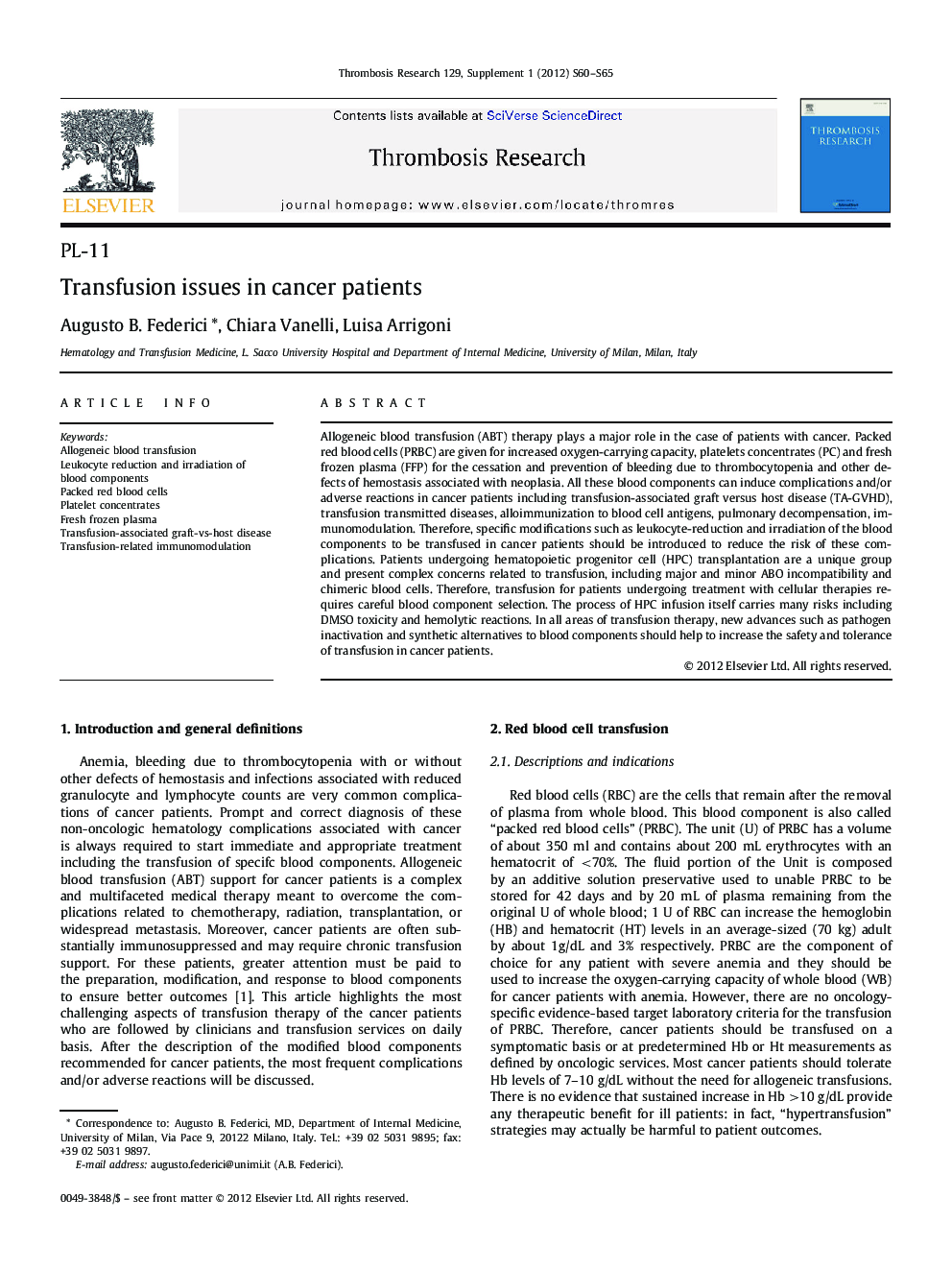| کد مقاله | کد نشریه | سال انتشار | مقاله انگلیسی | نسخه تمام متن |
|---|---|---|---|---|
| 3028531 | 1183016 | 2012 | 6 صفحه PDF | دانلود رایگان |

Allogeneic blood transfusion (ABT) therapy plays a major role in the case of patients with cancer. Packed red blood cells (PRBC) are given for increased oxygen-carrying capacity, platelets concentrates (PC) and fresh frozen plasma (FFP) for the cessation and prevention of bleeding due to thrombocytopenia and other defects of hemostasis associated with neoplasia. All these blood components can induce complications and/or adverse reactions in cancer patients including transfusion-associated graft versus host disease (TA-GVHD), transfusion transmitted diseases, alloimmunization to blood cell antigens, pulmonary decompensation, immunomodulation. Therefore, specific modifications such as leukocyte-reduction and irradiation of the blood components to be transfused in cancer patients should be introduced to reduce the risk of these complications. Patients undergoing hematopoietic progenitor cell (HPC) transplantation are a unique group and present complex concerns related to transfusion, including major and minor ABO incompatibility and chimeric blood cells. Therefore, transfusion for patients undergoing treatment with cellular therapies requires careful blood component selection. The process of HPC infusion itself carries many risks including DMSO toxicity and hemolytic reactions. In all areas of transfusion therapy, new advances such as pathogen inactivation and synthetic alternatives to blood components should help to increase the safety and tolerance of transfusion in cancer patients.
Journal: Thrombosis Research - Volume 129, Supplement 1, April 2012, Pages S60-S65